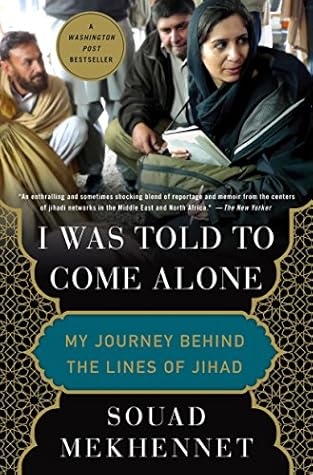More on this book
Community
Kindle Notes & Highlights
Read between
July 24 - August 29, 2017
cut to the question that was foremost in my mind. “Why are Sunnis and Shia still accusing and killing each other over things that happened hundreds of years ago?” I asked. “Politics,” he whispered, and smiled.
“Salafism” derives from the Arabic expression as-salaf as-salih, generally translated as “the righteous ancestors,” which refers to the first three generations of Muslims, who are believed to have practiced a “pure” Islam.
He smiled. “That’s a smart way of bringing up the interview again,” he said and took a date from the package. I looked at the dates. “It’s interesting that you hate the Shia and Iran so much,” I said. “But then you eat their dates.” “What?” Abssi asked and glanced at his deputy. The deputy looked furious. I suddenly had the feeling I’d said something I shouldn’t have. Fakhr looked at me and raised his eyebrows. Abssi picked up the package and read the small type: “Made in Iran.” He called for the man who’d brought the tea. “Don’t ever bring these dates again,” Abssi told him.
Four boys with plastic pistols ran toward the men. They must have been about five or six years old. The man who had taken notes through both my meetings with Abssi scooped up one of the boys. “How was it?” he asked. “We were at the camp, Baba, and they showed me a real gun,” the boy answered. “And then I played jihad and killed the kuffar,” he added, using the Arabic word for “unbelievers.” The man started laughing. “You killed the kuffar?” “Yes, Baba, with the pistol.” The man kissed his forehead. “I am very proud of you, my son.”
We decided to leave. I asked Abu Dania and Marwan to go to the car with Michael while I said good-bye to the host’s wife. She was sitting in the next room watching TV with her four small children. When I stuck my head in, I realized they were watching videos showing attacks on U.S. soldiers in Iraq, and Shia militiamen holding the severed heads of what they said were Sunni men in Iraq. “You’re letting them see all this?” I asked her. “Yes. They need to see who the enemies of Islam are,” she answered. “The earlier, the better.”
Asked to name his enemies, Abu Ibrahim said, “First, the Shia. Second, the Americans. Third, anywhere in the world where Islam is threatened.”
My source and I had devised what seemed, at the time, a novel and safe way to communicate. We avoided the phone completely. At first, we had been in touch by regular email. But at some point, worried about government surveillance, he and I had set up a joint email account using a German provider. We both had the log-in and password, which meant that we never had to send each other a message. Instead, as former CIA director David Petraeus and his mistress would do years later, we wrote emails and left them in the drafts folder, where each of us could log in and read them.


